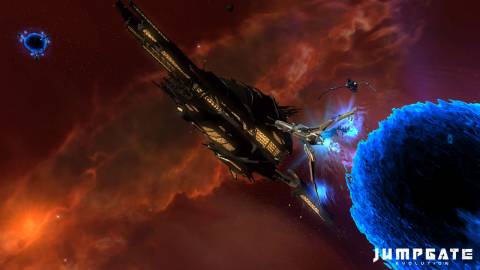Inception Review
By RHCPfan24 25 Comments
Your day is going well. Shockingly great, even. That band you wanted to see, you know the one whose closest show was located

It is not easy to condense Inception's storyline to a mere few paragraphs, as well as leaving out any spoilers, so it is best just to provide the bare synopsis. Dom Cobb ( Leonardo DiCaprio) is a master at a very specialized form of espionage: entering the subconscious of those his employer specifies, and then stealing critical, secret thoughts. Cobb is estranged from his children and his mysterious wife, Mal, whose fate is left in the balance until the end of the film. He is given a chance to reunite with his children if he accepts the job the wealthy Japanese magnate Saito ( Ken Watanabe) offers him. Fittingly, the task is near-impossible. Known as "inception," it is the process of implementing new thoughts into a person's subconscious, as to make it seem that the subject thought of them himself. The subject is Robert Fischer Jr., played by Cillian Murphy, who is the son of an ill energy tycoon and Saito's main competitor. The job, and its rewards, seem straightforward enough for everyone to agree. Obviously, as in any dream, nothing every works that easily.

It is not often for a movie to have such an intriguing premise, yet deliver on nearly all counts. Inception does this, and, while it is

A number of different influences run throughout this film. An obvious pick is The Matrix, where the worlds are built upon unreal creations of people's minds as well. A liberal use of slow motion is shared between the two films, though it is integral to the storytelling of Inception in a sense. There is also, somewhat shockingly, an "Architect" in both, though the roles are reversed. The Architect in The Matrix seemingly knows all the answers, while Ariadne ( Ellen Page), the architect in Inception, is the audience surrogate, new to the practices of these agents and as initially bewildered as the viewer to the process. The heist and spy nature of the film can be traced to Ocean's Eleven or James Bond (the ski sequence is an obvious throwback to Spy Who Loved Me), both involving a wide range of diverse, wisecracking characters. Traces of Blade Runner can be felt, as the uncertain nature of certain characters hangs in the balance. And of course, Christopher Nolan's greatest film (which may still hold the title, though only time will tell), Memento, is the lifeblood for the script itself. It is worth noting that Memento, which chronicles its events backwards, is dwarfed in complexity by this film and its limitless intricacies.

No amount of special effects can counter a bad script (ask a bare, DVD version of Avatar) or flat acting, but Inception encounters

The rest of the cast is varied but no less impressive. The youthful Joseph Gordon-Levitt, who balanced elation and melancholy perfectly in (500) Days of Summer, is an ideal partner to DiCaprio. He plays the sane(r) man to Cobb's rapidly spiraling mind, and this is the first blockbuster for the young man that will surely launch a career of many more successful films. He exchanges entertaining banter with Eames, played by Tom Hardy, the typical British bloke. The two provide most of the comic relief in the film, which is not terribly often, but humorous when it appears. Ellen Page, who narrowly missed an Oscar for Juno, excels in her role that begins in perplexed naivety to end as the only one besides his wife to truly understand Cobb's psyche. Her genius draws her to Cobb's attention through Miles, played by Michael Caine, who stops by for only five minutes total. He apparently is one of the main minds behind this "subconscious security" process, so when he sits behind a desk in a 19th century lecture ampitheater, it does not really meld with his character's reputation. Still, there is no harm in Michael Caine, and I would have welcomed more screentime. Avatar's Dileep Rao is the chemist behind the operation, supplying the sedatives for the subjects. It is strange, however, that these complex chemicals are simply stored in some dusty old store, which seems a bit off the mark. Nonetheless, Cillian Murphy plays his extremely critical role with an apt blend of wealthy elitism and frightened disorientation. A larger Tom Berenger, somewhat similar in complexion to Mickey Rourke nowadays, is the righthand man to the Fischer family, and proves to be a key point in successful inception. A scene when Eames, who is a "forger," alters his appearance to become a physical manifestation of Berenger's character is clever as the sparse editing makes the effect seem lifelike.

As much as I would like to call Inception perfect and close shop with that, it is not. No film is really, but there are a few qualms I should note. Mulholland Drive this is not, and while that will please most viewers who do not want to be savagely assaulted by perverse images and jagged storylines, it is almost too straightforward for a dream world. Dream logic is, well, devoid of any real logic, so the ease at which the agents move around the world and control themselves does not really align itself with the true science of dreams. The one problem that was notably apparent, however, was the bland nature of the dream worlds. As my opening paragraph attests to, dreams are supposed to be discordant, senseless and fantastical scenes that center around an impossible notion or ideal setting. Instead, the settings of these dreams are just city streets, hotels, and snowy fortresses without any conflict. The straightforward nature of these dreams is the only way a mainstream audience would be able to digest them, and there is already enough abstract content to deal with, so I understand where Nolan is coming from with these alterations. These minuscule flaws have little to no impact on the final product, but I feel obliged to express my thoughts.
Inception is a rare beast. The visual effects are astonishing and unlike anything you have ever seen before. Better yet, its wholly

Final Verdict:
5 Stars Out of 5
